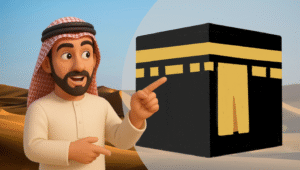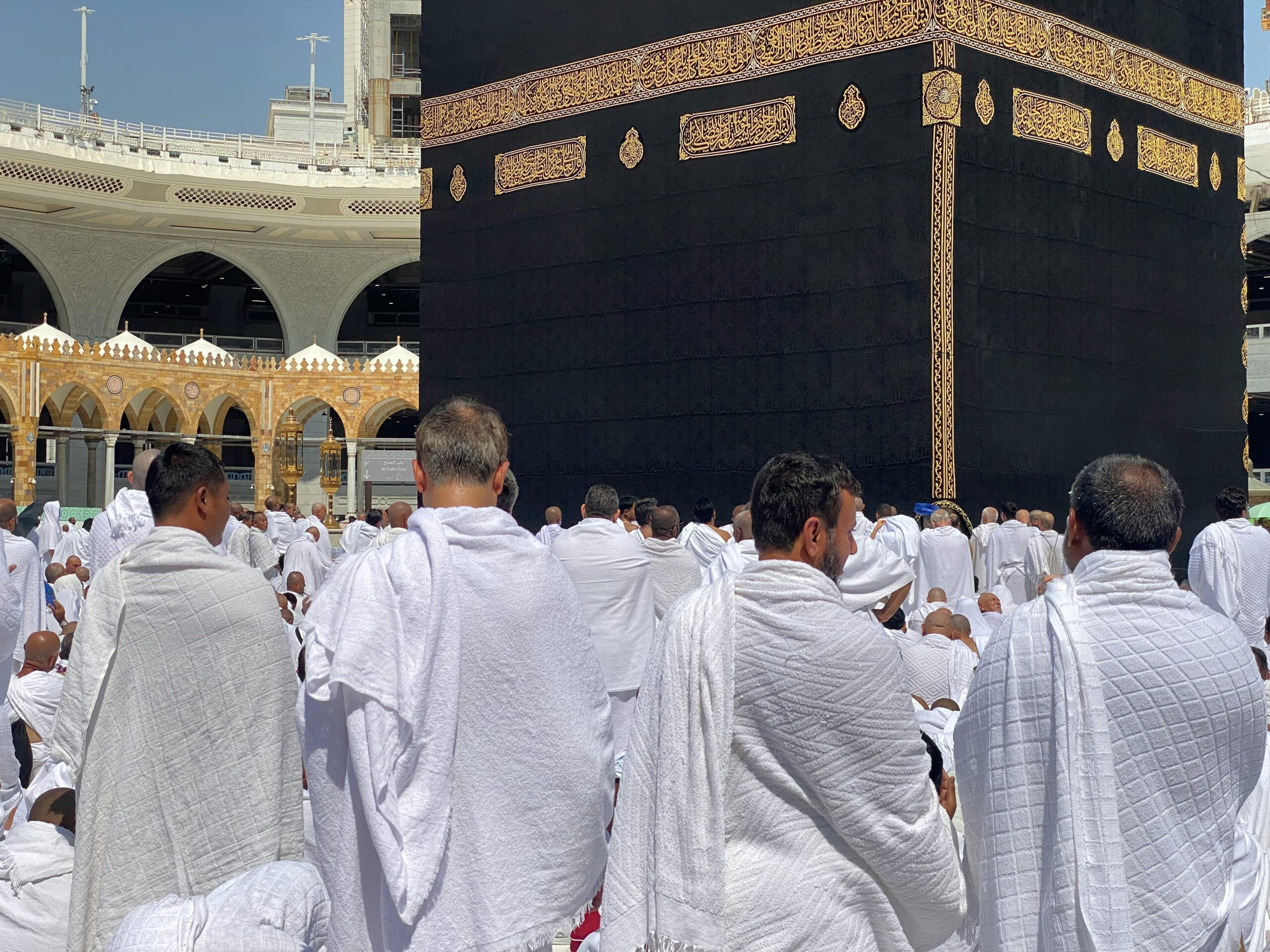
Let me start this off by saying: you can be the most physically fit person on the planet, but if you ignore the Hajj health requirements, you’re in for a tough time. I say this not just as a writer, but as someone who’s seen families, elders, and even super-organized types get completely thrown off in Makkah because they underestimated the physical and medical demands of Hajj.
Here’s the thing: Hajj is a deeply spiritual journey, but it’s also a logistical marathon. You’re sharing space with nearly 2 million people from every corner of the world, in scorching heat, walking miles across holy sites.
The crowd is massive. The conditions are intense. And yet, the beauty of it all is that with the right planning, especially on the health front, it becomes incredibly manageable.
Let me break it down for you.
1. The Non-Negotiables: Mandatory Hajj Health Requirements
Before anything else, get your vaccinations done early. This is the first step and trust me, if you delay this, the entire trip can fall apart. Without proof of these, your visa won’t be processed.
Meningococcal Vaccine (ACWY)
Meningococcal Vaccine (ACWY) before Hajj protects against meningitis, which can spread rapidly in crowds. Take it from me, my cousin almost missed his visa window because he forgot the timeline (you need it at least 10 days before travel, not older than 5 years). Don’t be like him.
COVID-19 Vaccine
Fully vaccinated status against Covid-19 is a must. Also, remember that boosters might be recommended depending on your country’s guidelines.
Yellow Fever (Country-Specific)
Yellow Fever vaccination is only needed if you’re traveling from regions where yellow fever is present. I advise you to check WHO’s latest list.
Polio (For Countries Like Pakistan, Afghanistan)
You will need Polio vaccination to be done if you’re from a country where polio is still an issue, get the OPV or IPV.
Take It from Me: Get everything recorded on a vaccination card. Laminate it. Keep a digital copy too. In Makkah, documentation is everything.
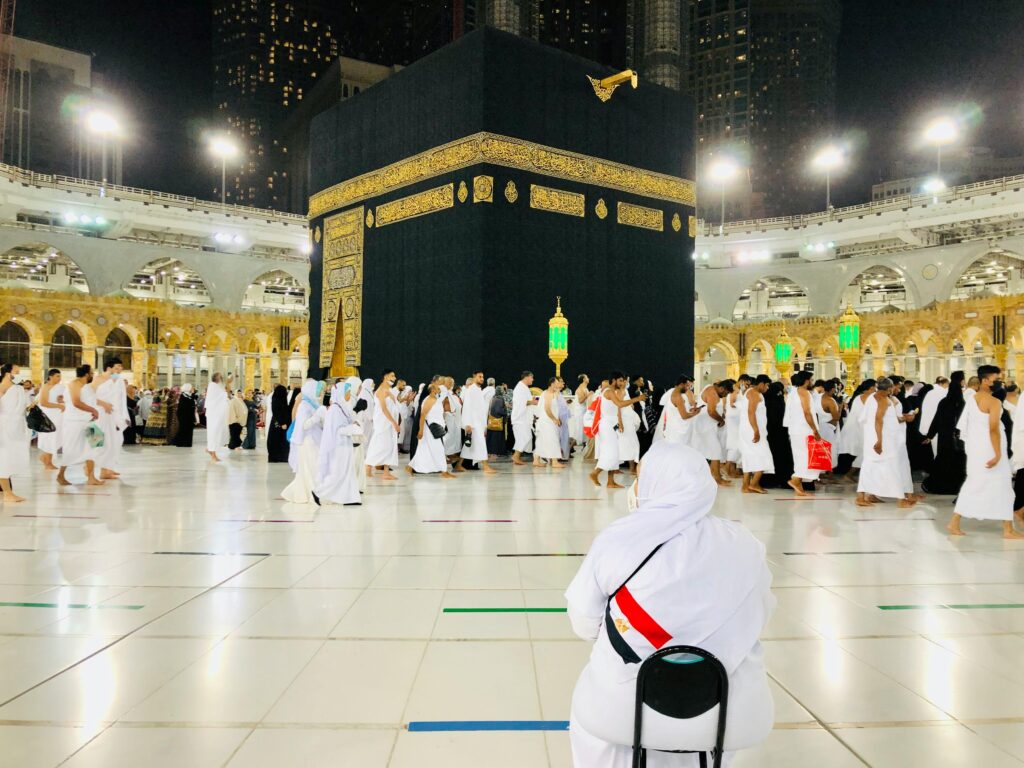
2. Hajj Health Requirements Most People Forget
Here comes the Hajj health requirements that doesn’t show up in visa checklists but absolutely makes or breaks your trip:
Basic Medical Screening
Some countries require this, but even if yours doesn’t, do it anyway. Get a general physical, blood pressure check, and a consultation if you have chronic issues.
I met an elderly man in Mina whose sugar levels dropped dramatically. He thought skipping meals for rituals was noble. It landed him in a clinic for half a day. Don’t spiritualize suffering when it can be managed with common sense.
Prescriptions and Notes
- Carry meds in original packaging.
- Get a doctor’s note in English, especially for controlled substances.
Someone from our group had anxiety meds confiscated at the airport because he didn’t have a note. It created chaos.
3. Your Personal Hajj Health Kit (Not Just First Aid)
This is where you pack like a pro. Here’s what was in my bag (and I ended up sharing half of this with others):
Essentials:
- ORS sachets – a must during Arafat day when heat and dehydration kick in
- Face masks and sanitizer – protect yourself from flu, COVID, and exhaustion
- Cooling towels – magic during peak heat (12-3 PM)
- Anti-chafing cream – life-changing for walking long hours in Ihram
- Sunscreen – you WILL get sunburnt. I did.
Bonus items I wish I packed earlier:
- Salt tablets
- Blister plasters (especially for Mina camps)
- Travel pillow (you’ll thank me at Muzdalifah)
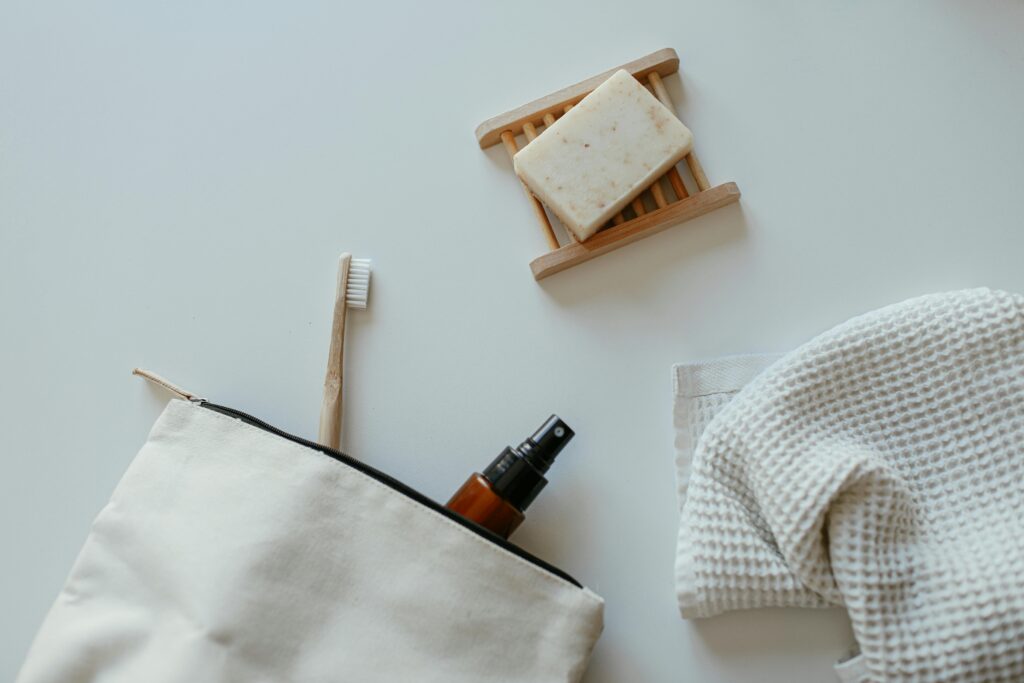
Need Complete Hajj Packing Checklist? Click Here
4. Staying Healthy in Saudi: The Real Talk
You can get all the vaccines and still fall sick if you don’t practice smart hygiene and common sense. Here’s what I noticed (and did myself):
Don’t Ignore Face Masks
Yes, it’s hot and uncomfortable. But during Tawaf, you’re face-to-face with thousands. Respiratory infections are super common.
Hydrate Smartly
- Don’t rely only on Zamzam water (although it’s blessed and hydrating).
- Keep a refillable bottle. We used hydration packs, the kind hikers wear. Game-changer.
Recognize Signs of Trouble
- Dizziness? Sit.
- Nausea or cramps? ORS and rest.
- Panic attacks? Talk to your group leader. It happens more than you think.
One of our tentmates had a panic attack during stoning because of the crowd size. Alhamdulillah, someone recognized it in time.
Also Read: A Step-by-Step Guide to the Main Hajj Rituals
5. What If You Have Chronic Conditions?
Hajj health requirements don’t just apply to the healthy. If you have:
Diabetes?
- Bring glucose gel or candies
- Test regularly – stress and heat spike sugar
Hypertension?
- Walk slowly
- Avoid peak crowd times
Asthma?
- Bring TWO inhalers, not one
- Inform your group leader
Take it from Me: Pack 20% extra meds in a separate bag, in case your main luggage gets lost or delayed.
6. Beware of Health Misinformation
So here’s a fun story: a friend forwarded a WhatsApp broadcast claiming “you can’t take Panadol during Hajj because it invalidates your fast.” Wildly false.
Another one said, “Don’t wear face masks, it shows lack of tawakkul.” Again, harmful nonsense.
Cross-check anything you hear about Hajj health requirements. Don’t risk your health because of chain messages.
7. Know Your Rights: Healthcare in Makkah
One of the best kept secrets of Hajj: Saudi Arabia provides free medical care to all pilgrims.
- Emergency clinics near major sites (Mina, Arafat, Muzdalifah)
- Mobile health teams patrol regularly
- Ambulances available by dialling 997
But remember: these services are for emergencies. For minor issues, local pharmacies are your best bet.
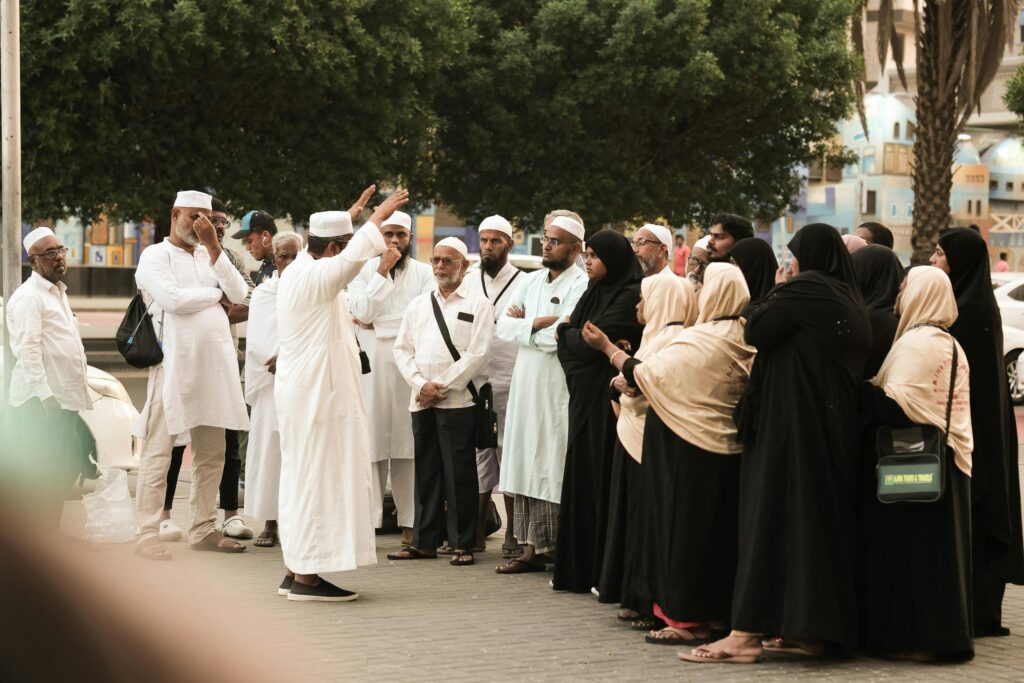
Take it from Me: Bring your prescriptions with generic names, not just brand names. That way, Saudi pharmacists can easily help you find the same meds.
8. Hajj Health Requirements for Families
Traveling with kids or elders? You have even more Hajj health requirements to consider.
For Kids:
- Pediatric vaccines must be up to date
- Include basic meds like paracetamol, fever strips, ORS
- Practice using face masks before travel
For Elders:
- Get a full heart and blood pressure check
- Carry light, supportive footwear
- Wheelchair? Register in advance for support at Tawaf/Sa’ee
We met a couple from Malaysia who brought a travel-sized commode chair for their elderly parent. At first it felt excessive. Later, we were envious of how smart they were.
One Last Thing
The spiritual weight of Hajj is immense. You’re there for something so much greater than yourself. But the only way to fully experience it is to be physically and mentally prepared. Meeting the Hajj health requirements isn’t just about paperwork; it’s about making sure you’re healthy enough to complete the rituals with peace and gratitude.
So take this seriously. Take care of your body. And you’ll return not just spiritually fulfilled, but proud that you planned well.
If this helped you even a little, send it to someone preparing for Hajj. It might just be the nudge they need to avoid a health mishap.


